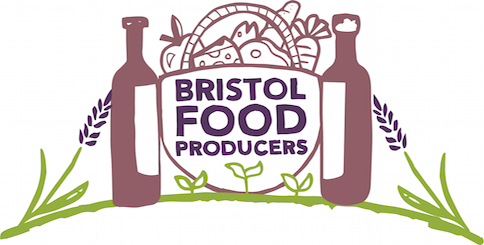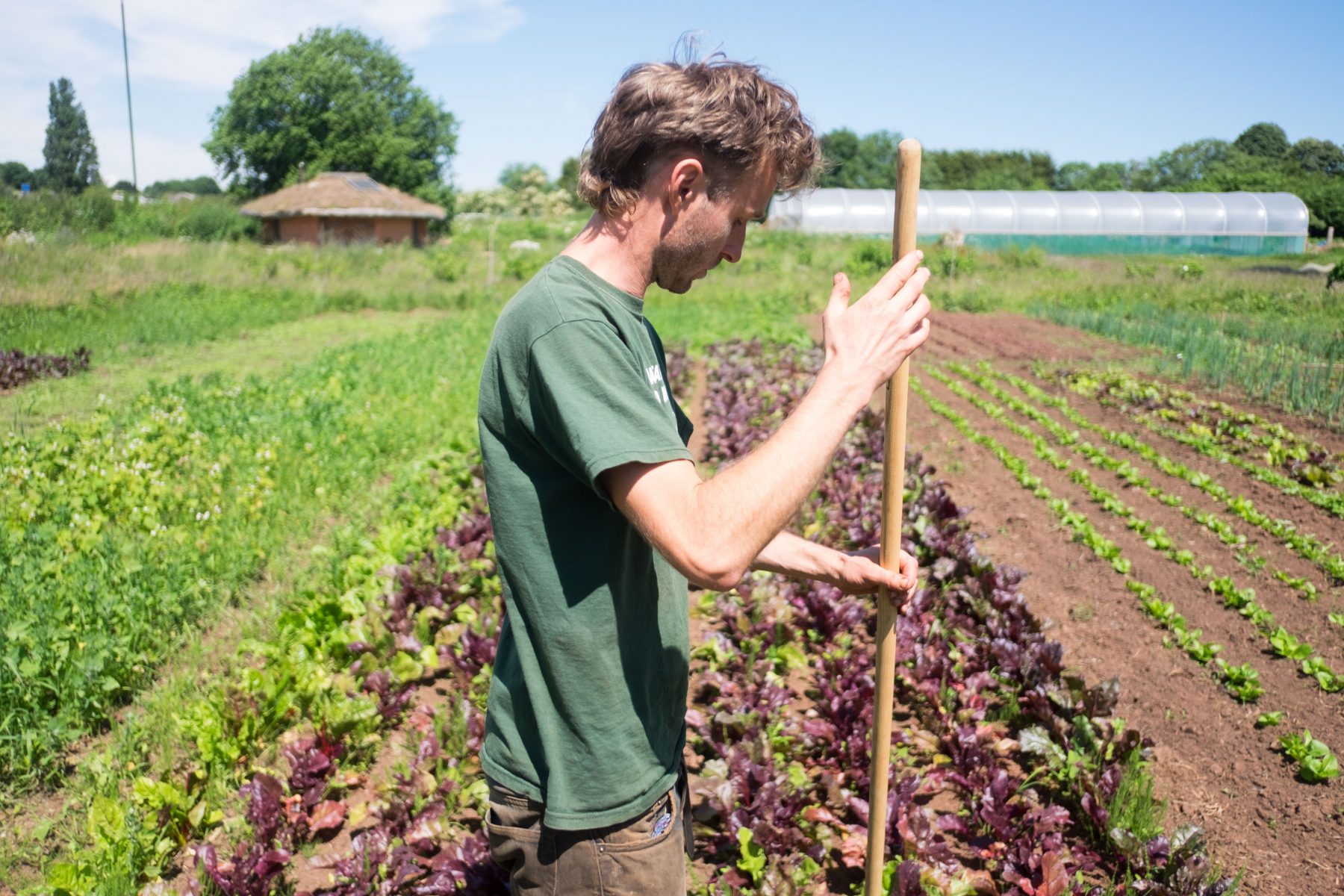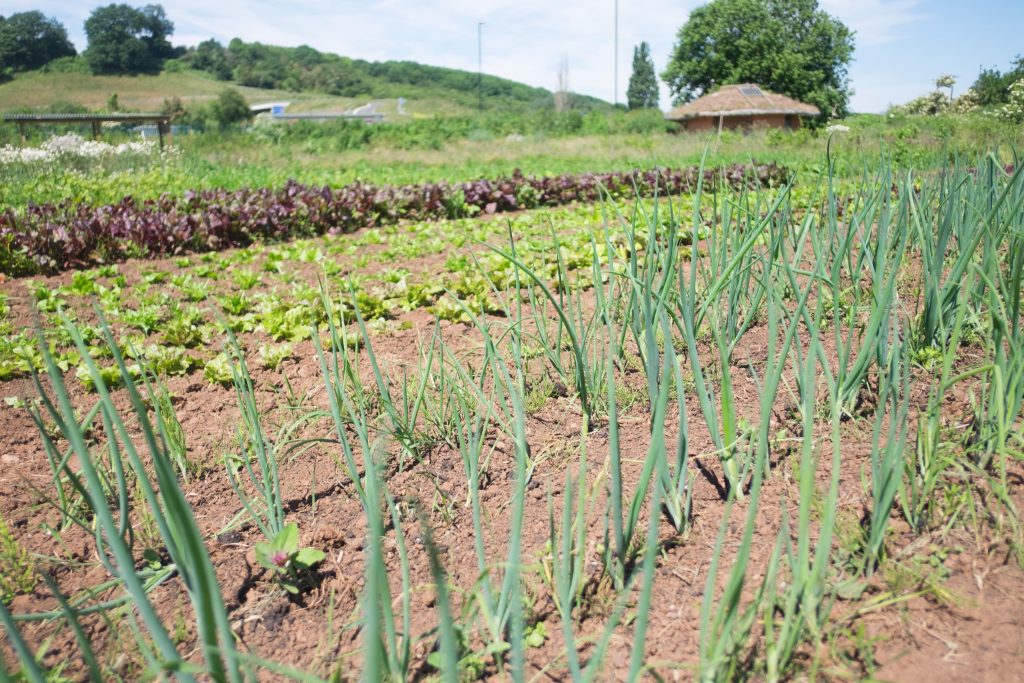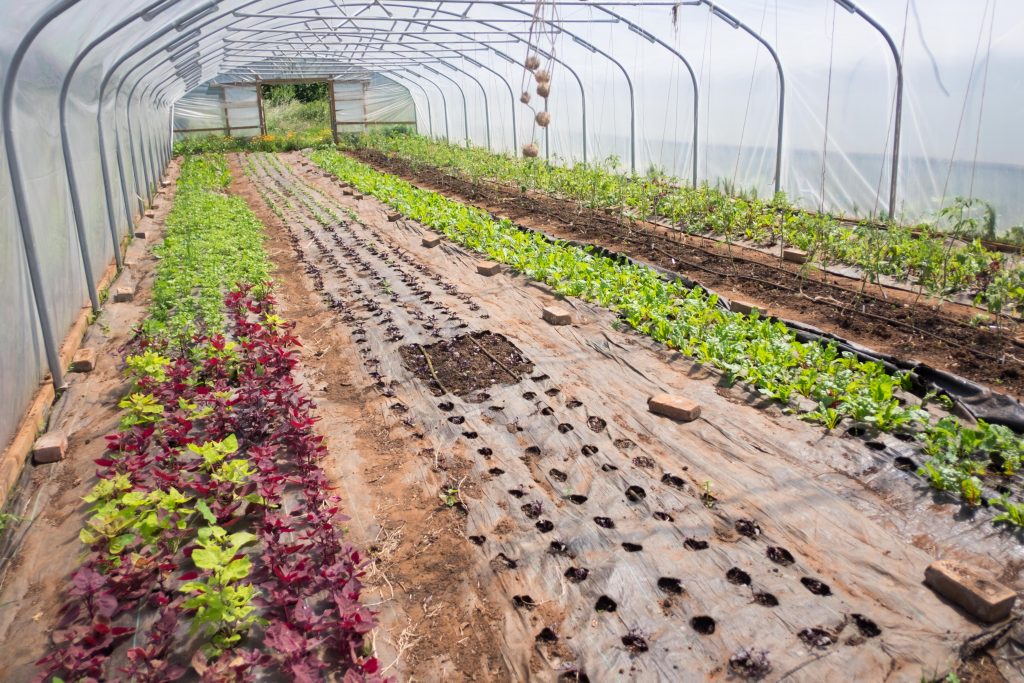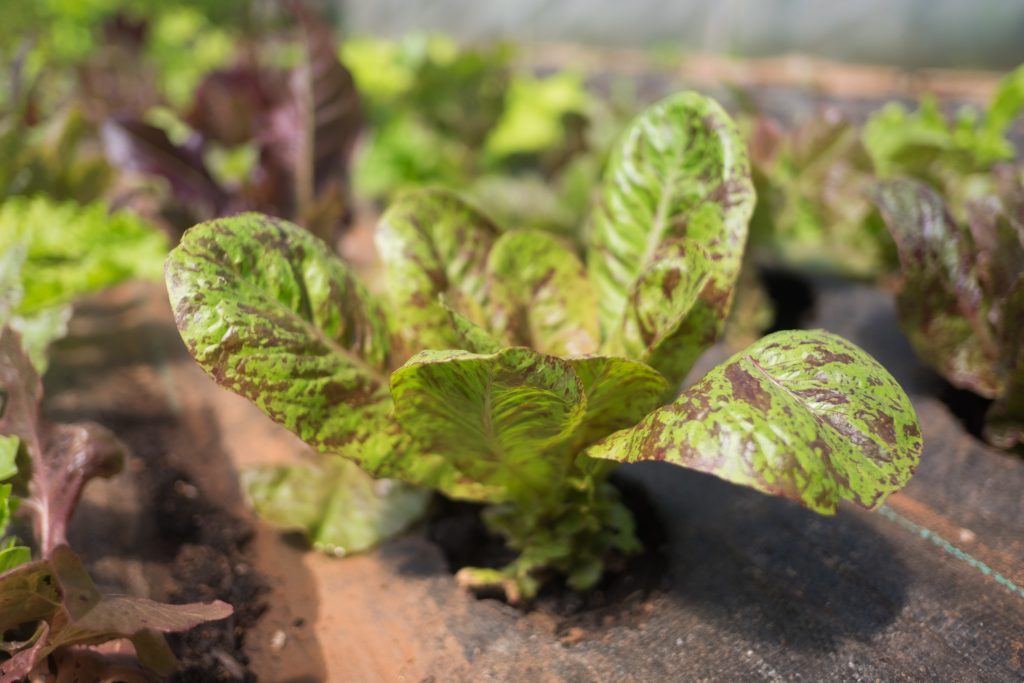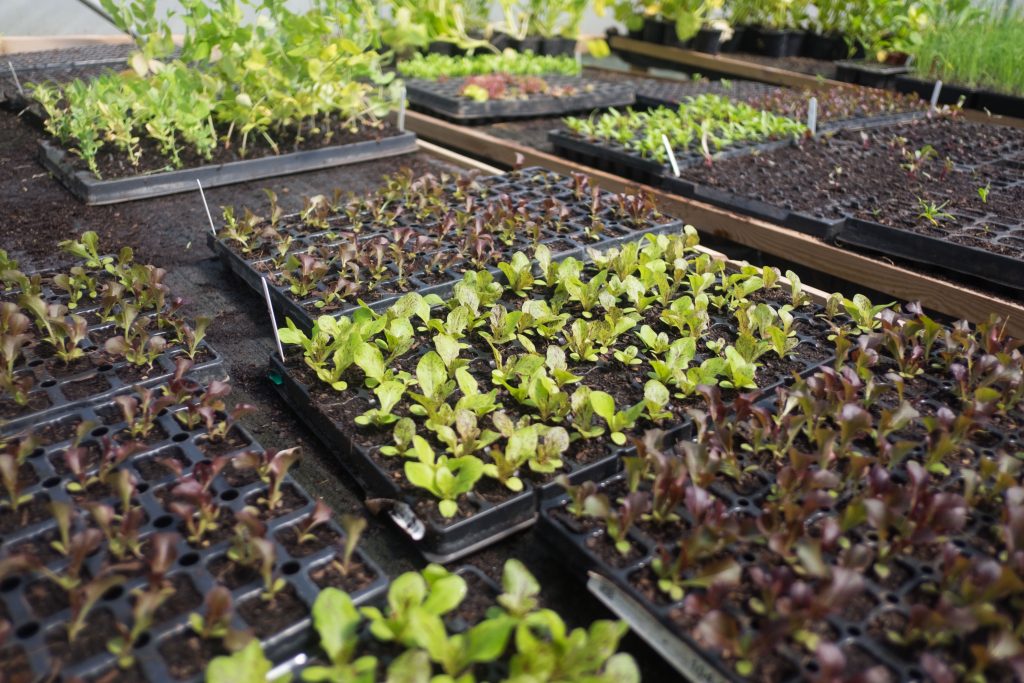Edible Futures aims to do exactly what the name suggests. Set up as a Community Interest Company, the business was established 7 years ago. “We set up tunnels and started growing edible perennial plants for sale,” grower Humphrey explains. “But we also started to crop salad and vegetables and sell them to restaurants. And over the years the latter part, the market garden has become the main thing we do.”
Starting on a piece of land in Brislington, they moved to the Feed Bristol site four years ago. “We have almost 1.5 acres here, with two 90ft polytunnels, and we crop herbs salads and vegetables,” he tells me as we walk past beds of lettuce and spring onions that Humphrey is in the middle of hoeing. I look around at the Feed Bristol site, a 7-acre county farm leased from Bristol City Council by Avon Wildlife Trust, bursting with vegetables and wildlife thanks to the several businesses and projects operating on the site, including Sims Hill and Upcycled Mushrooms. “There’s something really nice about working in a field with various other people!” he points out, smiling, as we watch people working in the fields around us.
Edible Futures sell around 50% of their produce directly to local restaurants, with the rest sold through a Community Supported Agriculture model called Salad Drop. “People become a member, then get a small, medium or large share of salad a week, delivered to one of three drop off points around Bristol (Montpelier, St Werburghs and Easton),” he explains. We have a look in the polytunnels, packed full of countless types of salad leaves, tomato plants climbing their way up strings, and propagating tables packed full of starts.
I ask Humphrey why he became a grower. “I became involved in growing, not through the practical side, but through an environmental and political angle,” he points out. “About 10 years ago I started working on an allotment project with refugees when I was living in Leeds. From working there I began developing my skills as a grower and began to really think that being a grower was a nice way of bringing together something practical and the politics of sustainability and food sovereignty.” Jobs in horticulture aren’t easy to come by though, especially if you want to live in a specific place. “I decided the thing to do was to establish my own horticultural enterprise, so that’s what I’ve done here in Bristol,” he explains, looking around at the bounty of produce growing around us.
Seeking shelter in his packing shed (a wonderfully cool strawbale structure), we chat about the reality of being a farmer. “It’s been a long hard road for me to develop all the necessary skills that I need – and that’s not just being a good grower, it’s also marketing, working out a delivery system, working out your accounts, harvest record systems. There’s a million and one aspects of running a business that you don’t think of initially but are actually really important!” he points out. But ultimately, it’s worth it; “It’s work that I personally believe in and find fulfilling and enjoy. I love doing manual work. It’s not all I love doing, but it does make me feel strong and healthy, and have a practical reason to get out of bed in the morning. It also feels to me like it’s doing something constructive, socially and politically,” he tells me.
Talk turns to the wider food and farming movement, something Humphrey is very involved in. “I’m finding that I’m increasingly becoming part of a community of people who are interested in not just practical farming, but the politics of sustainability and food sovereignty more generally. Like Bristol Food Producers and the Land Workers’ Alliance and so forth. And those are exciting networks and communities to be part of. I’m constantly meeting likeminded people who challenge me, who have new ideas, who are setting up new projects and that’s great as well!
So why should people buy local and support growers like Edible Futures? “Because local and organic farming produces various benefits for the environment and society,” he explains, listing things off on his hands. “Generally the smaller scale the farms are, the more environmentally friendly they are, the more biodiverse they are, it incurs less food miles.” As we chat more, the topic switches to the social benefits of local food; “The nearer a farm is to you, the more connected you’re going to feel to it,” he starts, “And the more we have a diverse patchwork of little farms that are connected to the people who are eating the food from them, the more we have a system of food sovereignty where people are connected and have some kind of stake in the way that food is produced.”
Find out more: http://www.ediblefutures.co.uk
